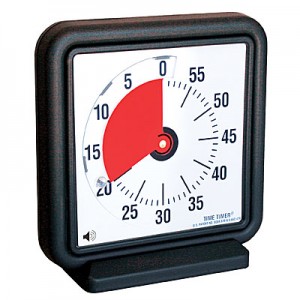About six years ago, when my older son was almost 4, I got all excited when I heard him say the phrase, “Ten little teddy bears.” He had virtually no vocabulary in those days, and he almost never spoke. And here he was, uttering a four-word phrase. This was indeed a cause for celebration.
Of course, this happened in a simpler time, when everyone assumed that my son had nothing more than a speech delay. The word “autism” had only made it into my personal orbit as a possibility to be in complete denial about. What? Autism? No way! He just has a speech delay, he’ll catch up!
When we got the autism diagnosis, we found out about echolalia, defined by Wikipedia as “the automatic repetition of vocalizations made by another person.” All kids do it at some point, but most outgrow it. Kids with autism keep at it with admirable dedication, sometimes for years and years. The words being repeated may change, but the concept remains the same.
Ten little teddy bears stayed with us for some time, eventually giving way to phrases related to Bob the Builder and Mr. Potato Head.
I used to think that as the frequency of George’s contextually correct speech increased, it would edge out the echolalia, but that has not been the case. George definitely talks more. He has an extensive vocabulary, and although he hardly ever talks in a social context and still cannot participate in a conversation, he does make requests using full sentences. There is plenty of room for George’s contextual speech to coexist with echolalia.
Over the years, we have been treated to song lyrics, phrases from YouTube videos, sentences uttered by teachers and things that have been said at home.
“Bob dropped the eggs. What a mess.”
“I need Dizzy, Lofty and Muck.”
“No pushing, no kicking, no hitting.”
“Well it’s a sunny day. I feel brand new.”
Some of the echolalia is charming, and it’s thrilling to hear my child utter any words at all. But it is a little disheartening to know that a lot of what he says does not have any meaning or context behind it.
The latest echolalia is not charming. It takes the form of a single word – a word that I would not use on this blog if it weren’t a pivotal part of the story.
Fuck.
I freely admit that it is my fault. Although I try my best to be aware of my choice of words when the kids are around, from time to time I slip up with the F-bombs. It happens rarely, but the kid only has to hear a word once.
At first it was simple repetition, and we responded in the same way we’ve responded to all other echolalia: by ignoring it. Sure, it wasn’t fun to listen to this word being said over and over ad nauseum, but for a while, the best reaction was no reaction at all. Many autism experts agree that any response at all, even a negative reaction, can be perceived by the child as positive reinforcement.
This tactic lost its effectiveness when George got wind of the fact that fuck is that most tempting of things: a Bad Word.
We are now dealing with a child who gleefully yells, “Oh FUCK!” and then runs away in fits of giggles.
Ignoring it no longer works. You know that persistence and single-mindedness that many people with autism display?
Yeah. George’s ability to laughingly repeat the word is greater than my ability to ignore it.
Reprimands don’t work, and in fact, just aggravate the situation and make it funnier from George’s perspective.
The only thing left is the dreaded removal of privileges. I really don’t want to go this route because there will be a meltdown for sure, but I may not have a choice.
Unless, as someone on Facebook suggested, he actually uses the word in context. If that happens, I might just throw a party.
How do you handle inappropriate language in your typically or not-so-typically developing children?
(Photo credit: Vectorportal. This picture has a creative commons attribution license.)












